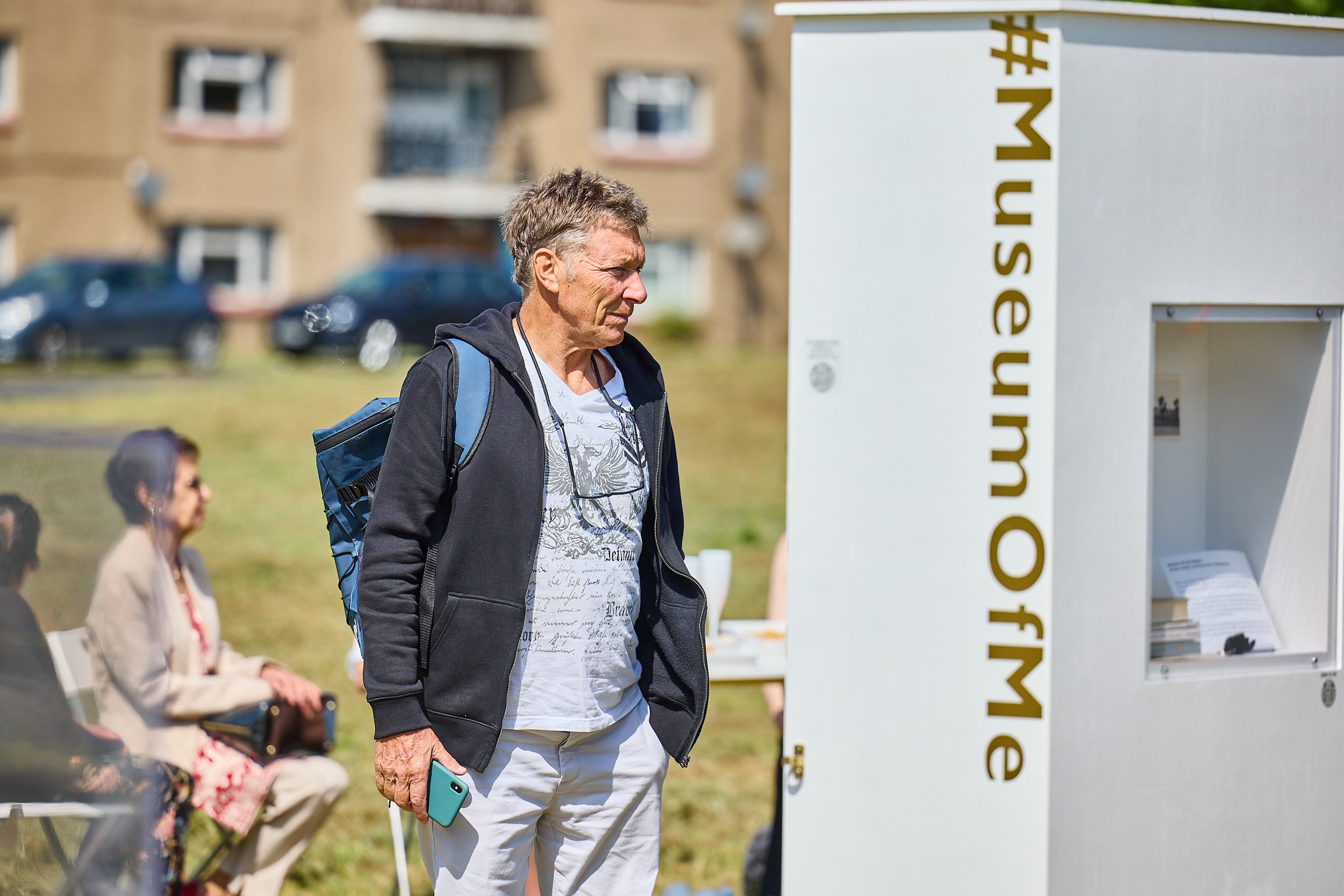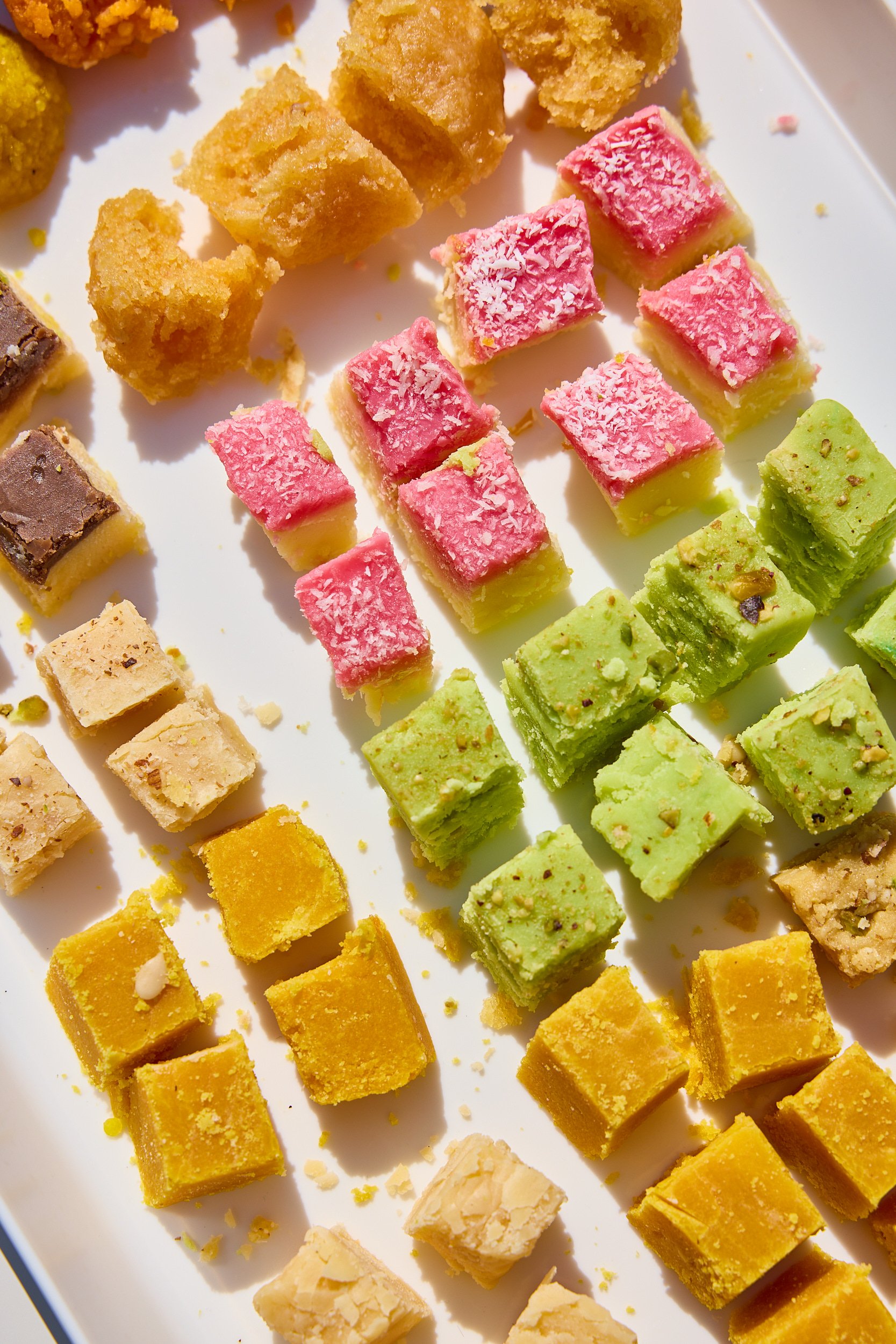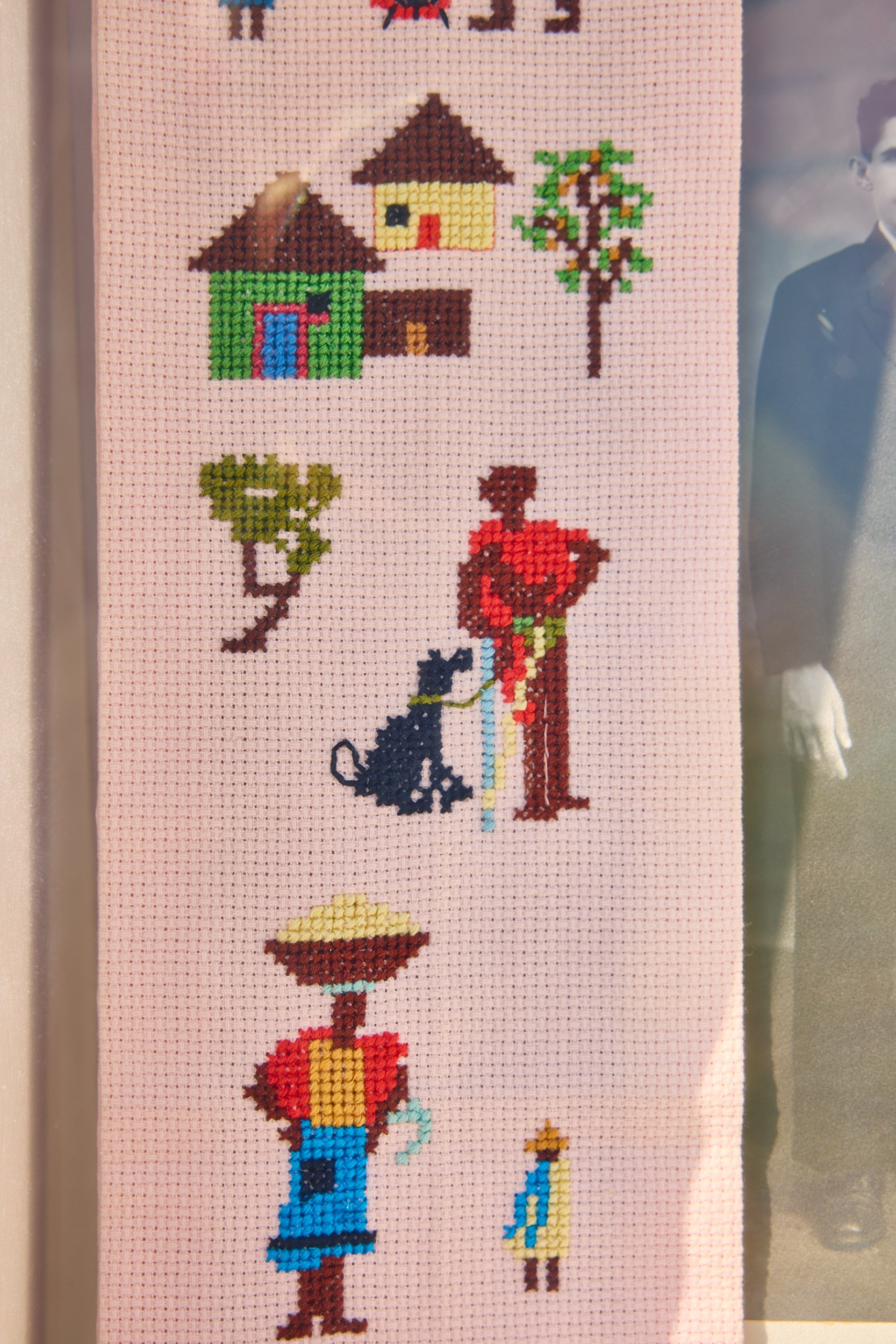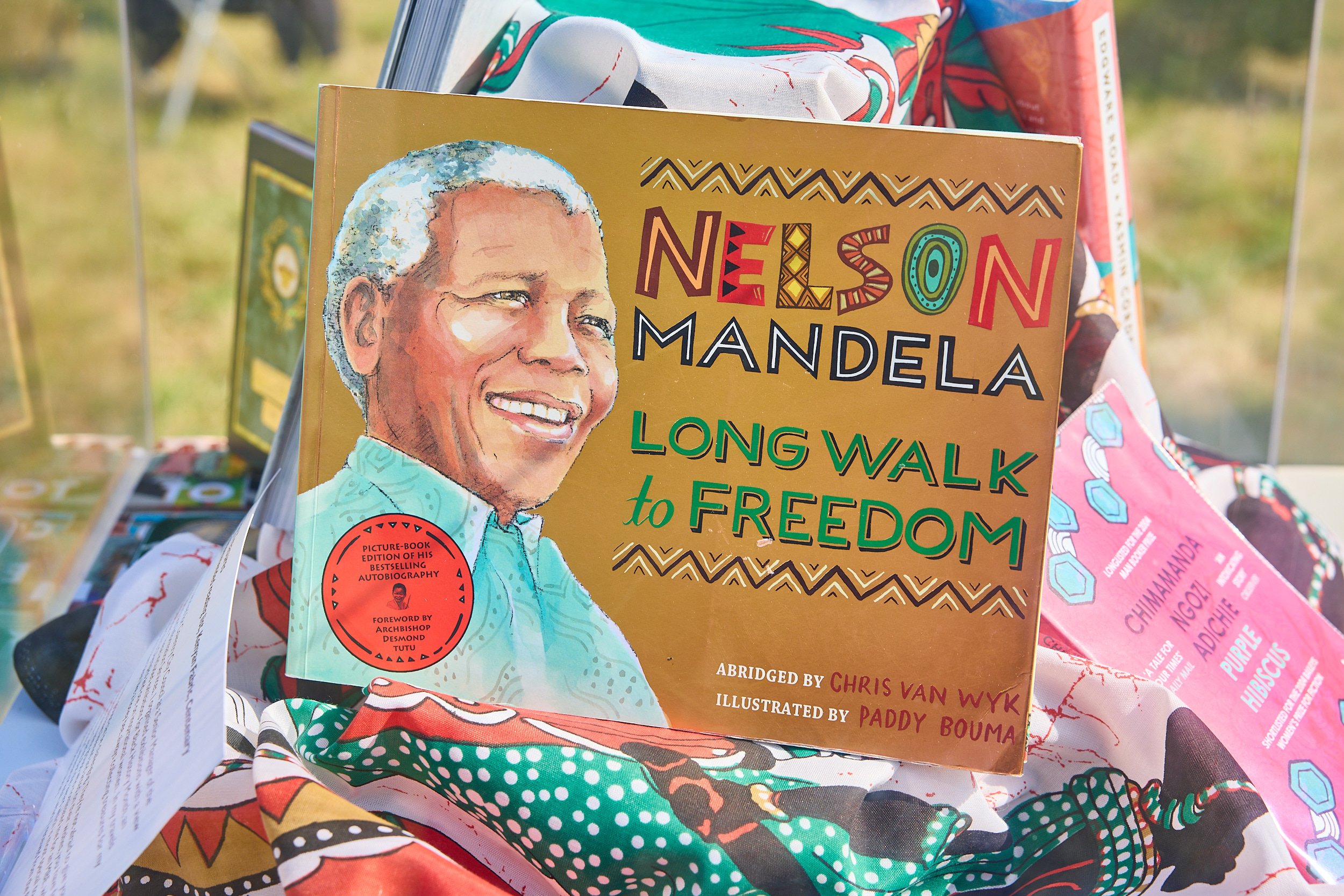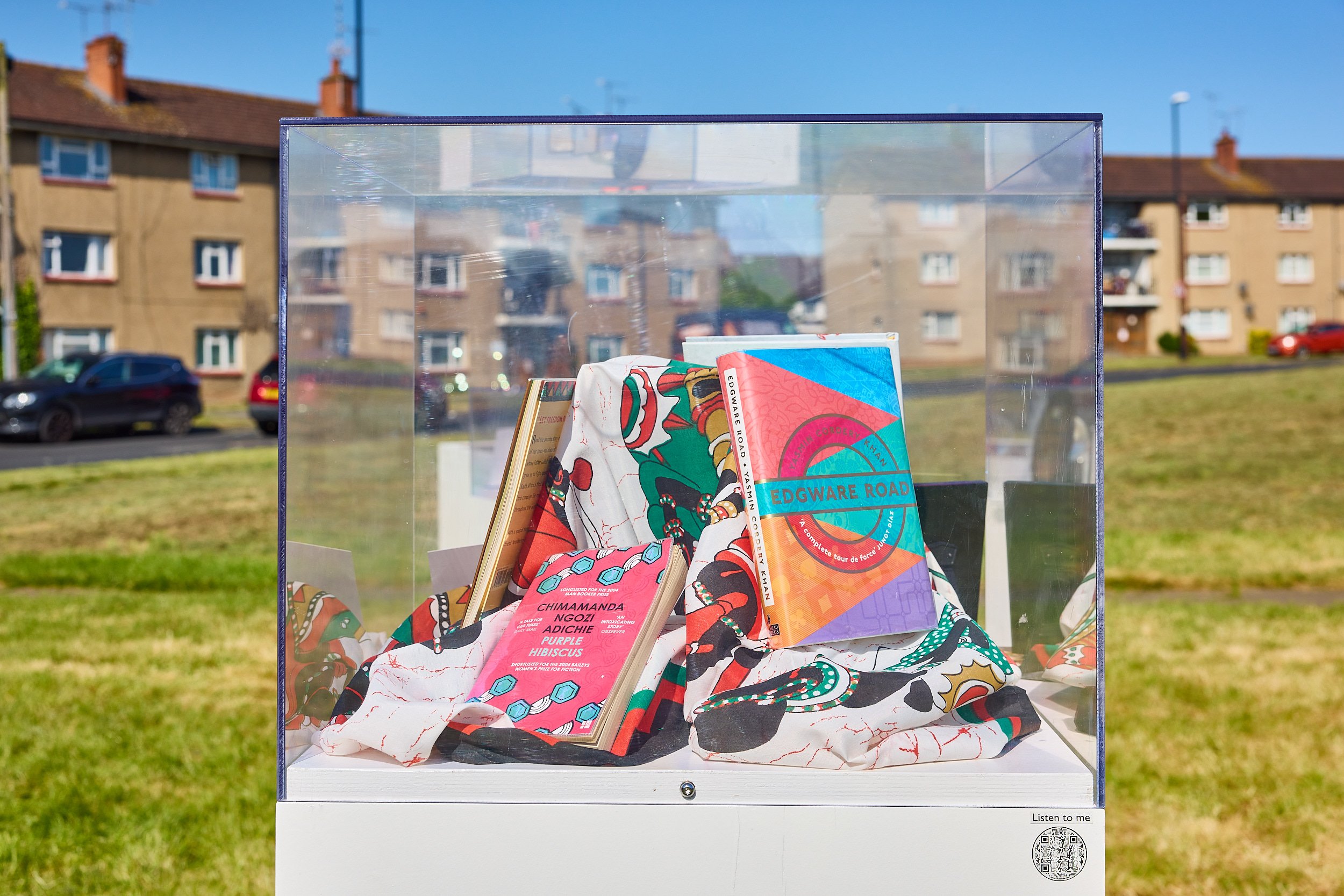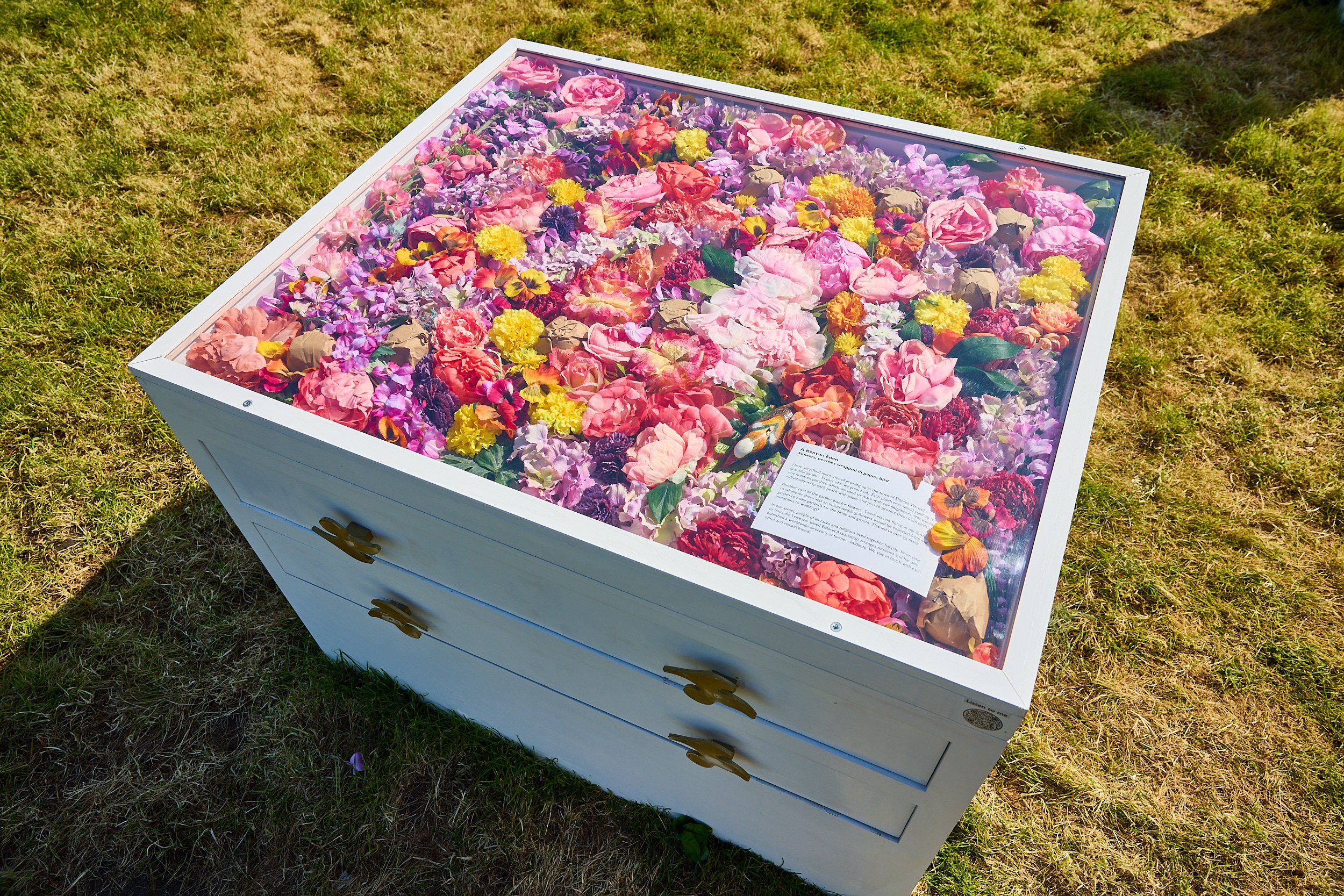
Mehru Fitter MBE
THE CHANGE YOU WISH TO SEE
We all have things we wish to change about the world around us; the political landscape of the country, the segregation within our communities, or the painful online filing systems they have at work.
Mehru Fitter MBE is a testament to the notion that if you notice something needs to change, that is something you have the potential to lead on, do, or be. If the online filing system at work really does need a change, be it!
Mehru was born in Kenya, educated in India and has worked for many years in the UK. She has seen empires crumble and governments topple. She’s witnessed intolerance, confusion and segregation. But through it all, Mehru has kept in her mind the beautiful friendships she witnessed as a child and the tasty curry she was greeted with when she first arrived in Coventry.
The Museum of Mehru Fitter MBE invites you to celebrate and champion how we care for one another and to lead on, do and be the change you wish to see.

Good day to you,
I’m Mehru and I’ve worked in Coventry for 28 years, bringing communities together.
We’re all used to going to Museums and looking at works by famous artists or listening to authors, but this is a unique project because it focuses on ordinary people going about their ordinary lives but achieving something. Before I agreed to have my own Museum I visited the website, and I found it ever so inspiring to read people’s stories and find I could relate to them. I hope you relate to my story and leave feeling that you have achievements to celebrate, too.
I wanted my Museum to encourage people to have pride in our city and to appreciate the benefits of volunteering. The communities of Coventry form an orchestra which never plays out of tune, and we all play our part in that.
Warmest wishes,
Mehru Fitter MBE
The Museum of Mehru Fitter MBE
-

Makers of the Nation
Books, badges
After graduating in India, I went back to Kenya. My first job was teaching at an Asian girls’ Secondary School in Kisumu on the banks of Lake Victoria. I was a teacher/librarian and that is where my love affair with libraries began.
While I was at Kisumu, Kenya gained independence from Britain. Before that, only Asian heritage pupils were allowed at the school, afterwards the school became multi-racial. There were also changes to the curriculum. Where we used to have to teach British authors like Dickens, after independence, West African authors were introduced, such as Chinua Achebe.
Teaching was always utter bliss and teachers were highly respected. Students paid for their education, so they were highly motivated. We were considered ‘makers of the nation’ and we really thought we were educating the leaders of tomorrow.
-

Giving Time
Photograph of Mehru’s parents, newspaper article, cross stitch panel
Our home was always full of visitors. My Dad had an excellent command of English and he. would write letters for people in English. He would help to interpret, he would help to translate and he would also guide people. I’m proud to say he never took a penny for any of those services.
That is something that he instilled in me – that one must always find time for volunteering. I get great pleasure out of giving my time and always gain something in return - friendship, skills and satisfaction.
I’ve now retired from volunteering for the Positive Images Festival, Coventry Multi Faith Forum and the Coventry Women’s Forum. However,I am always willing to help when requested. Now I’m connected with Hardish Virk’s South Asian Migration Project. It’s a huge archive of artefacts, sound recordings, books etc. We hope to soon organise an exhibition.
-

Collecting Treasures
Mehru’s recommended reading list, Kenyan Fabric, Centenary medal
For many years I worked for Coventry City Council as a Senior Manager of the Multicultural Library and Information Services. I organised exhibitions with a view to promoting libraries. These included exhibitions for Black History Month, an exhibition on the 2012 Olympics and one on inspirational women. In my travels around the world I have been like a honey bee, always collecting treasures for my exhibitions.
Coventry’s community groups can be challenging. They’re not afraid to give you feedback! But once you have listened and acted on their wishes, you have friends for life. It was the community groups who nominated me for an MBE, which I received from Prince Charles. But the award which is most special to me is the Library Association's Centenary Medal, which I received from the Princess Royal in the newly opened British library.
-

The Right Place
Spice tin, gathiya machine, pestle and mortar
My first day in Coventry I’d come with a young Kenyan woman and wanted to buy her a meal to thank her for helping me. She wanted an Indian meal and well, we looked everywhere and could not find an Indian restaurant!
I saw a woman in a shop and I knew she was Gujarati from the way she wore her Sari, so I asked her. She wrote something on a piece of paper. I commented that she hadn’t written the name of the restaurant, only the address.
It was her home address! She said that any time I wanted to eat Indian food I should come over. I’d never experienced anything like that. I was amazed by the welcome people gave me here. I knew I was in the right place.
-
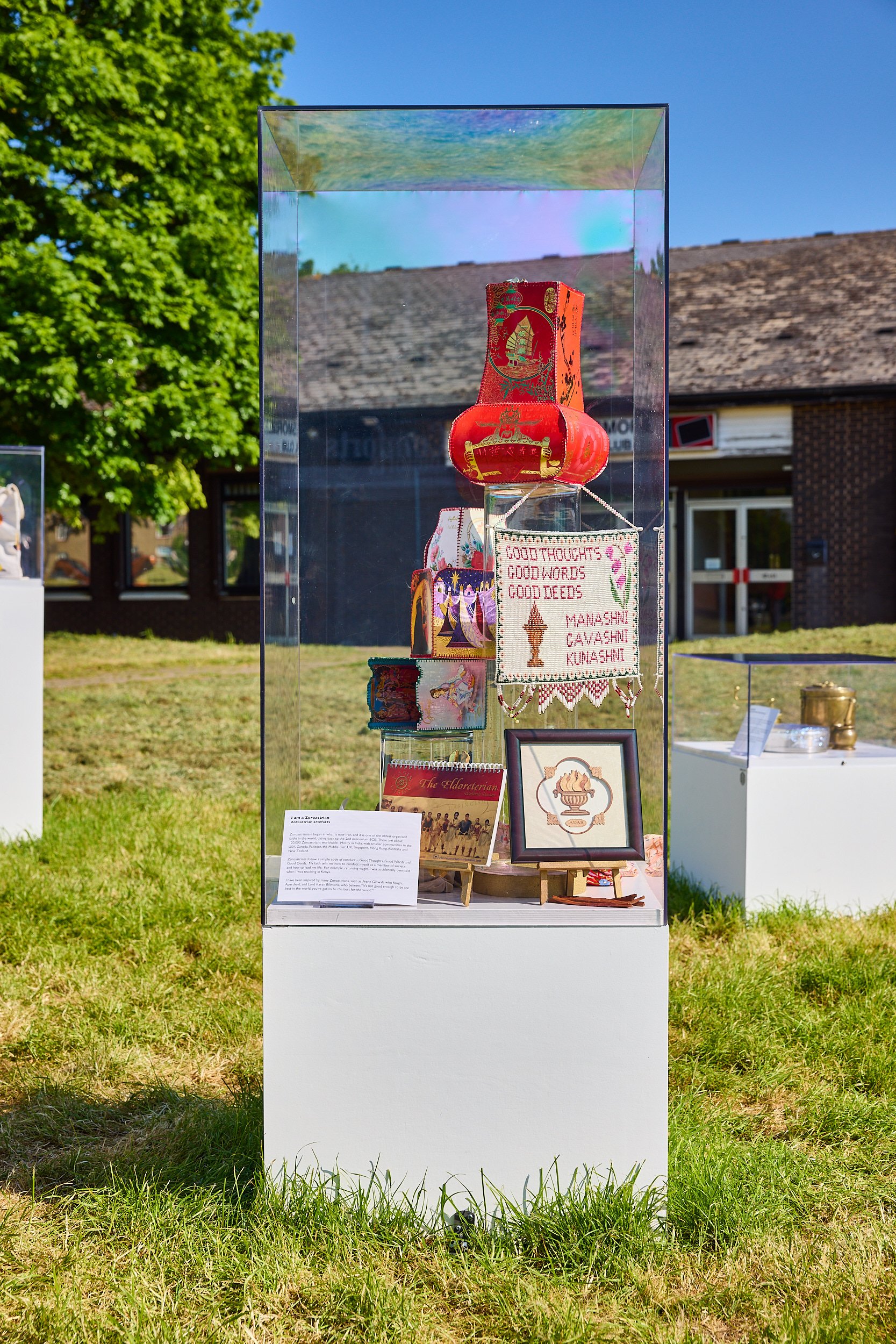
I am a Zoroastrian
Zoroastrian artefacts
Zoroastrianism began in what is now Iran, and it is one of the oldest organised faiths in the world, dating back to the 2nd millennium BCE. There are about 120,000 Zoroastrians worldwide. Mostly in India, with smaller communities in the USA, Canada, Pakistan, the Middle East, UK, Singapore, Hong Kong, Australia and New Zealand.
Zoroastrians follow a simple code of conduct – Good Thoughts, Good Words and Good Deeds. My faith tells me how to conduct myself as a member of society and how to lead my life. For example, returning wages I was accidentally overpaid when I was teaching in Kenya.
I have been inspired by many Zoroastrians, such as Frene Ginwala who fought Apartheid, and Lord Karan Bilimoria, who believes “It’s not good enough to be the best in the world, you’ve got to be the best for the world.”
-

The Multi-Faith Forum
Mehru’s Mum’s beautiful faith vases
I joined Coventry’s Multi-Faith forum in the 1980’s, and soon realised I knew more about other people’s faiths than my own. I knew I had to put that right, so I became a member of the Zoroastrian Trust Funds of Europe- learning, attending training sessions and meeting other Zoroastrians.
Armed with new found confidence, I chaired the Forum for a number of years. We provided opportunities to learn from and interact with people from different faiths through exhibitions and Peace Walks.
Our approach was that the best way to break down barriers is by having fun together, providing opportunities for people to ask questions and chat. At one event, a man ate barfi- Indian fudge - and vowed to go down the Foleshill Road for the first time to buy more. At another I remember someone asking ‘Why does my chapati look like Australia?'
-

Positive Images
Positive Images globe, Queen’s award, Lifetime achievement award
A newly appointed Central Library Manager - Colin Scott and I joined hands to organise a festival celebrating diversity. Teaming up with a community bookshop on the High Street, we held our first Positive Images Festival in 1994. A highlight was the scintillating performance
by Benjamin Zephaniah. Positive Images Festival, which has been going for 28 years, has brought together the voluntary, community and statutory sectors.
We have received a Community Cohesion Award from Coventry City Council and the Queen’s Award for Voluntary Service. I also received a Lifetime Achievement Award from Coventry Punjabi Writers’ Association, a regular participant in our festival.
When I left Positive Images Festival, people surprised me at a finale event by giving me this beautiful Globe trophy as a memento.
-
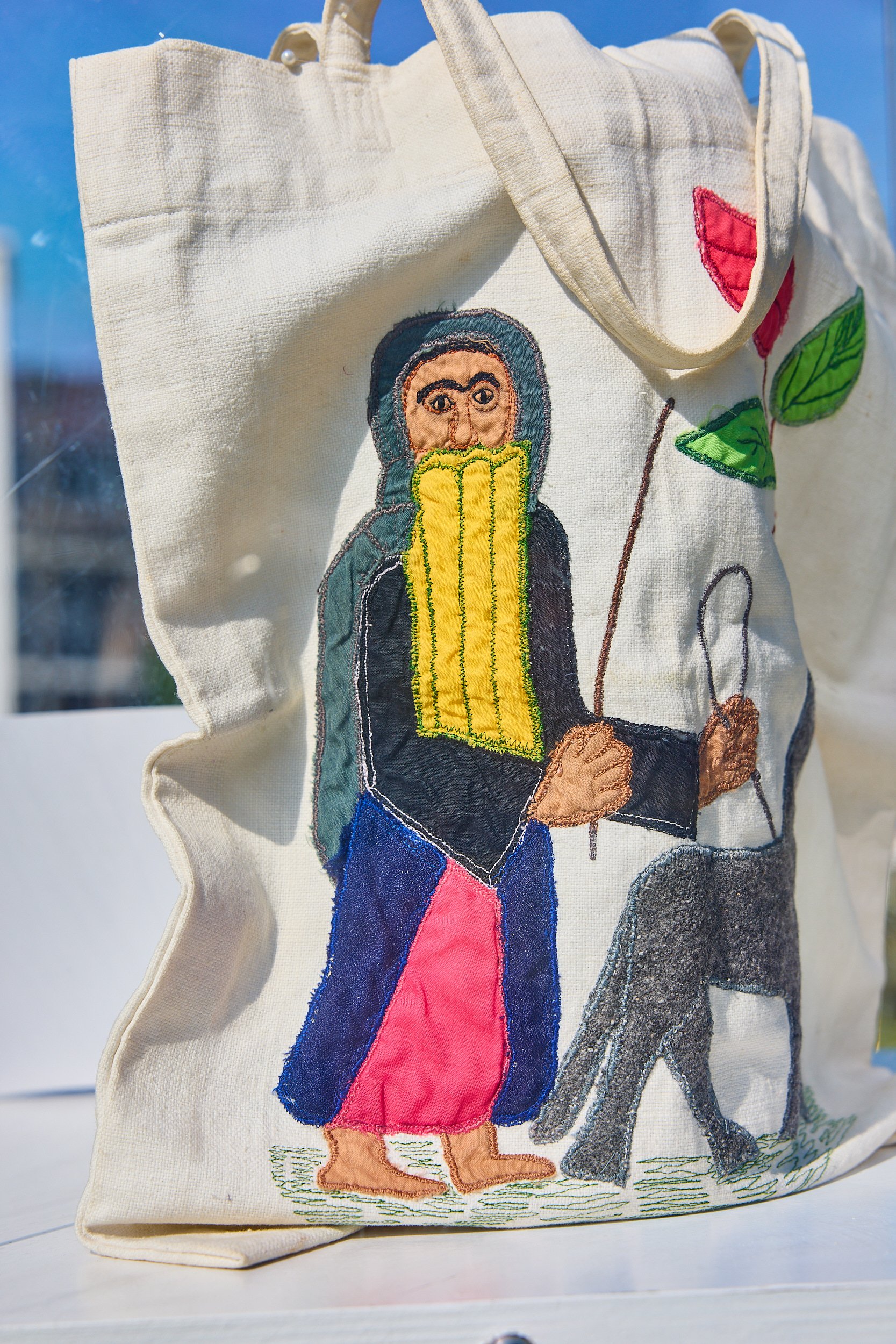
My Mother’s Story Bags
Story bag
In the town where I went to school, there wasn’t a library. My Mum wanted all her daughters to benefit from education, because she hadn’t had the benefit of a higher education herself. She knew that we had to be good at English and so to help us, she told us stories. And to help us remember the stories, she embroidered them onto bags.
This bag tells the story of Ali Baba and the forty thieves. On the other side is a story she made up herself. The moral is that it’s not good to be greedy. We used to listen to her stories every Sunday as a treat.
My Mum also taught us Zoroastrian prayers so we could be initiated into the religion. My parents instilled excellent values in me. When I was older I realised that these values were Zoroastrian as well as universal.
-

A Kenyan Eden
Flowers, peaches wrapped in paper, bird
I have very fond memories of growing up in the town of Eldoret. We had a beautiful garden. In part of it we grew fruit. Each peach tree would yield up to one hundred peaches, which we used to share with our neighbours. We would individually wrap each peach with paper and pins to protect them from birds.
Another part of the garden was for flowers. There was no florist in my town, so whenever there was an Indian wedding, flowers would be collected from our garden to make garlands for the bride and groom. This led to ever so many invitations to weddings!
In our street, people of all races and religions lived together happily. From time to time, the Leicester-based Eldoret Association arranges reunions and has also published a worldwide directory of former residents. We stay in touch with each other and remain friends, and the Association arranges reunions.
-

An Indian Education
College Photo, Sari
At 14 I finished O-Levels and was sent to college in India.
It was a real eye-opener for me to see women in all sorts of leadership roles. I was amazed to see women heads of school and colleges and women doctors. I could also see a big contrast between wealth and poverty, but I noticed that people in India had great fortitude. I bought this beautiful silk sari during my stay there and after wearing it for many years, I had it transformed into a Punjabi dress.
The teachings of Mahatma Gandhi have always inspired me. I love the quote “The wise person accepts the essence of the different scriptures and sees only the good in all religions.”
I now attend the Gujarati Sahitya Forum meetings every Sunday and at one meeting we were addressed by Mahatma Gandhi's Grandson.
-

Immeasurable Kindness
Driscoll house archives
When I first came to the UK, I came to Elephant and Castle in London. Finding suitable accommodation was a very big problem. Eventually I got a place in Driscoll House.
Terrence Driscoll was not a man interested in making money, he was interested in the welfare of his residents. He would take us to the theatre, to ice shows, to the House of Commons. He would get us tickets at discounted prices and treat us all to snacks in the interval. I have yet to come across anyone who thought so much about the happiness of others and so little about the damage it was doing to their pockets. When I applied for a course in librarianship, I was told I would be charged overseas fees. Terrence Driscoll kindly allowed me to work with the hostel kitchen team, cooking a full English breakfast for two hundred people so I could raise the money I needed.

Gallery
Photography by Andy Moore


